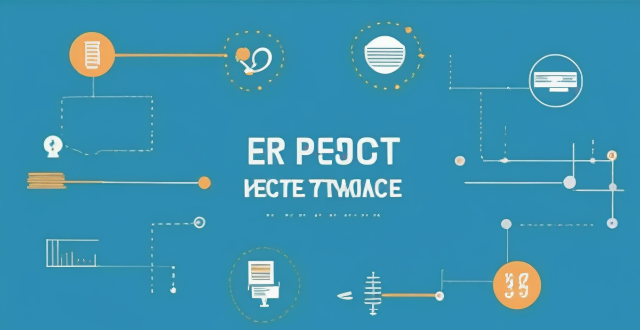Contract Sports

What is the difference between a regular contract and a smart contract ?
A regular contract and a smart contract differ in terms of their **nature**, **enforceability**, **cost**, **speed**, and **transparency**. Below are the key differences between these two types of contracts: ## Nature ### Regular Contract - Legal agreement between two or more parties. - Typically written in natural language (e.g., English). - Governed by local laws and regulations. ### Smart Contract - Self-executing contract with the terms directly written into code. - Deployed on a blockchain network. - Enforced by the underlying code and cryptographic protocols. ## Enforceability ### Regular Contract - Relies on legal institutions for enforcement (e.g., courts). - May involve mediation or arbitration processes. - Penalties for breach can be monetary or involve other forms of relief. ### Smart Contract - Autonomously executes when predetermined conditions are met. - Enforcement is decentralized and automated. - Penalties for breach are typically programmed into the contract logic. ## Cost ### Regular Contract - Can be costly due to legal fees, notary services, and potential litigation expenses. - Involves overhead of paper-based record keeping and manual processing. ### Smart Contract - Generally less expensive because it eliminates intermediaries. - Costs associated with blockchain transaction fees and contract deployment. ## Speed ### Regular Contract - Time-consuming process from negotiation to signing and execution. - Settlement times can vary widely depending on the complexity of the agreement. ### Smart Contract - Faster execution once the conditions are met. - Real-time settlements possible due to automation. ## Transparency ### Regular Contract - Limited transparency; only involved parties have access to the contract details. - Requires trust in the counterparty to disclose all relevant information. ### Smart Contract - High transparency; contract code and transactions are visible on the blockchain. - Trust is placed in the immutable and verifiable nature of the blockchain.

What is a smart contract ?
Smart contracts are self-executing contracts with the terms of the agreement between buyer and seller being directly written into lines of code, which exist across a distributed, decentralized blockchain network. They allow for transactions and the transfer or distribution of cryptocurrencies to be executed automatically without the need for a central authority, legal system, or external enforcement mechanism. Smart contracts are autonomous, immutable, traceable, and decentralized. They have various use cases such as cryptocurrency transactions, insurance claims, supply chain management, real estate transactions, gambling and betting, and legal documents. The benefits of smart contracts include efficiency, transparency, security, speed, and accuracy. However, there are challenges and considerations such as code quality, lack of legal recognition, interoperability issues, and privacy concerns.

What are the benefits of hiring a sports agent for career management ?
Hiring a sports agent can bring numerous benefits to an athlete's career management, including negotiating contracts and deals, marketing and branding assistance, legal representation, and career planning and development. By working with an experienced sports agent, athletes can focus on their performance while leaving the business side of their careers in capable hands.

How can schools address the issue of contract cheating, where students pay others to complete their assignments or exams ?
Addressing contract cheating in schools is crucial for maintaining academic integrity. Effective measures include using advanced plagiarism detection tools, educating students on academic integrity, encouraging open discussions, providing support services, and collaborating with parents and guardians. These strategies can deter students from engaging in contract cheating and promote a culture of original work.

What role does sports economics play in determining player salaries and contracts ?
Sports economics plays a crucial role in determining player salaries and contracts by considering various factors such as market demand and supply, revenue generation, cost of production, risk management, competitive balance, and free agency. Teams must make informed decisions about player compensation while balancing financial considerations with the goal of achieving success both on and off the field.

Are there any hidden fees or contracts associated with upgrading my broadband ?
When upgrading broadband, beware of early termination fees, equipment rental costs, and installation charges. Also, understand contract minimums and auto-renewal clauses before committing.

How do smart contracts work ?
Smart contracts are self-executing contracts with the terms directly written into code, operating on a decentralized blockchain network. Key features include autonomy, trustless transactions, immutability, and traceability. The working mechanism involves deployment, execution based on predefined conditions, verification through consensus algorithms, and settlement updating contract states. Benefits encompass efficiency, transparency, security, and the removal of intermediaries. Challenges include legal recognition, coding errors, and handling complex logic. Smart contracts revolutionize traditional contract law by enabling secure, automated, and transparent transactions on blockchain networks.

What are the potential risks associated with sports sponsorship and how can they be mitigated ?
Sports sponsorship is a popular marketing strategy used by companies to promote their brand, products, or services. However, there are potential risks associated with sports sponsorship that need to be considered and mitigated. These risks include reputational risk, financial risk, and legal risk. To mitigate these risks, companies should conduct thorough research on the athlete/team before signing a sponsorship deal, ensure alignment between the sponsor's values and those of the sponsored entity, set clear budgets for sponsorship activities, monitor the performance of the sponsored entity, negotiate flexible contract terms, and work with legal experts to ensure compliance with all relevant laws and regulations. By managing these risks, companies can maximize the benefits of their sports sponsorship investments.

What are the potential risks associated with smart contracts ?
Smart contracts revolutionize digital transactions but pose risks like code vulnerabilities, legal uncertainties, lack of human oversight, interoperability issues, and privacy concerns. Users must understand these potential pitfalls before engaging in smart contract agreements to mitigate adverse outcomes.

What education and training is required to work as a sports agent ?
Education and training are crucial for aspiring sports agents, who must possess a bachelor's degree in relevant fields and often benefit from a master's degree. Internships and certification programs offer hands-on experience and professional development, while key skills include communication, business acumen, legal knowledge, networking ability, and ethical standards. Continuous learning is essential to adapt to industry changes and ensure long-term success.

What are the legal implications of using smart contracts ?
Smart contracts, self-executing contracts with terms written in code on a blockchain, raise legal questions about enforceability, jurisdiction, privacy, security, and regulatory compliance. Best practices include consulting a legal expert, clearly defining terms, considering jurisdiction, and prioritizing privacy and security.

How can smart contracts be used to streamline financial transactions ?
Smart contracts can streamline financial transactions by automating processes, reducing costs, and increasing efficiency. They can automate payments and transfers, act as escrow services, create loan agreements, streamline insurance claims, and facilitate trading and exchanges of financial assets. As blockchain technology evolves, we can expect more innovative uses for smart contracts in the financial industry.

What are smart contracts in the context of blockchain ?
Smart contracts are self-executing digital agreements that operate within the blockchain, providing a decentralized and trustless system for transactions. They are created using specific programming languages and deployed onto a blockchain platform. Once conditions are met, smart contracts execute automatically, with each node verifying the process to ensure accuracy. Applications include cryptocurrencies, supply chain management, real estate, insurance, and legal agreements. However, challenges like immutability, complexity, legal standing, and privacy concerns must be addressed.

Can smart contracts be used in traditional businesses ?
Smart contracts, self-executing contracts with terms written into code, can be used in traditional businesses but have limitations such as legal issues and complexity. They offer advantages like transparency, efficiency, and security but also present challenges like lack of human touch and privacy concerns. Businesses should carefully consider their specific needs before adopting this technology.

What strategies can sports organizations employ to maximize revenue generation while maintaining fair competition within their respective leagues ?
Strategies for maximizing revenue generation in sports organizations include securing sponsorship and partnership deals, implementing dynamic ticket pricing models and fan loyalty programs, and managing player salaries and benefits effectively. These strategies aim to promote fair competition within leagues while generating additional revenue streams through corporate sponsorships, local business partnerships, media rights agreements, technology collaborations, merchandise partnerships, demand-based pricing, early bird discounts, package deals, rewards programs, membership clubs, community outreach programs, performance bonuses, contract incentives, health insurance and retirement plans, youth academy programs, college partnerships, and player loan programs.

How do athletes get involved in philanthropic activities through sports ?
Athletes often use their fame and resources to make a positive impact on society through philanthropic activities. They get involved in various ways, such as personal interests and passions, endorsement deals with charitable organizations, fundraising events and challenges, partnerships with non-profit organizations, and corporate social responsibility initiatives. Some examples include LeBron James founding the LeBron James Family Foundation, Stephen Curry partnering with Under Armour to donate shoes, Ryan Lochte raising money through a livestreamed swimming challenge, Serena Williams partnering with Yetu for solar energy solutions, and NBA Cares focusing on improving the lives of youth and families around the world. Overall, athletes are making a positive impact on society through sports.

How has technology influenced the design of sports fashion ?
Technology has significantly influenced sports fashion design, introducing advanced materials, digital printing techniques, smart wearables, and increased customization options. These innovations have enhanced the functionality, comfort, and style of sports apparel, catering to individual preferences and needs.

What are the benefits of using smart contracts ?
Benefits of Using Smart Contracts Smart contracts are self-executing contracts with the terms of the agreement between buyer and seller being directly written into lines of code. They offer a range of benefits including automation, transparency, security, efficiency, and cost savings. By automating processes and reducing the need for intermediaries, smart contracts can save time and money, as well as reduce the risk of errors or fraud. They are secured by cryptography, which makes them extremely difficult to hack or manipulate. This security feature can be particularly useful in situations where sensitive information needs to be shared between parties. Smart contracts can also lead to cost savings by reducing the need for intermediaries or third parties. As blockchain technology continues to evolve, it is likely that we will see even more innovative uses for smart contracts in the future.

How does sports sponsorship impact the grassroots level of sports and sports development programs ?
Sports sponsorship has a significant impact on grassroots sports and sports development programs by providing financial support, resources, and exposure. Sponsorship money can be used to fund equipment, facilities, coaching, and other essential resources required for the smooth functioning of these programs. Additionally, sponsors often provide high-quality equipment, improve sports facilities, fund professional coaching, and invest in marketing and promotional activities. Sports sponsorship also provides valuable exposure opportunities for grassroots sports and sports development programs, helping them gain recognition, credibility, and attract more participants, fans, and sponsors. Overall, sports sponsorship plays a crucial role in promoting sports participation and contributing to the overall development of athletes and the sport itself.

How does sports medicine help prevent injuries in sports ?
The text discusses how sports medicine helps in preventing injuries in sports by providing athletes with necessary knowledge, skills, and resources for maintaining their health and safety. It outlines key ways such as pre-participation physical examinations, proper warm-ups, strength training programs, correct technique, injury management, and education. These measures aim to identify risks, prepare the body for exercise, enhance fitness levels, promote safe practices, and manage injuries effectively. Overall, sports medicine plays a vital role in fostering a culture of safety and well-being within sports communities.

What is the impact of sports movies on the sports industry ?
Sports movies have a significant impact on the sports industry by inspiring and motivating people, promoting healthy lifestyles, generating interest in different sports, and providing marketing and branding opportunities. These movies can encourage people to pursue their dreams, work hard, and never give up, as well as highlight the importance of physical fitness and healthy living. Additionally, sports movies can generate interest in less popular or well-known sports and provide excellent marketing and branding opportunities for companies involved in the sports industry. Overall, sports movies play an essential role in shaping public perception and attitudes towards sports and physical activity.

How do sports monitoring systems analyze muscle activity and fatigue ?
Sports monitoring systems analyze muscle activity and fatigue by employing various technologies and methodologies, including: 1. Electromyography (EMG) to measure electrical muscle activity and detect fatigue indicators. 2. Heart rate monitoring to track intensity, recovery, and heart rate variability (HRV). 3. Accelerometry to track motion patterns and assess fatigue through changes in movement quality. 4. Force plates and pressure mats for measuring ground reaction forces and load distribution. 5. Blood lactate testing as a metabolic indicator of anaerobic metabolism and fatigue. 6. Perception-based scales like Ratings of Perceived Exertion (RPE) for subjective feedback on exertion levels. 7. Sleep tracking to monitor sleep duration, quality, and rest disruptions. 8. Environmental monitoring to account for external conditions affecting performance and fatigue. These systems provide valuable insights into an athlete's performance, enabling coaches and athletes to adjust training regimens, prevent overtraining, and enhance overall sports performance.

How does team sports impact mental health compared to individual sports ?
This article explores how team sports impact mental health compared to individual sports. It highlights the social support and belongingness provided by team sports, which can reduce feelings of isolation and loneliness. The article also discusses how team sports promote accountability and responsibility, helping individuals develop discipline and self-control. Additionally, it emphasizes the importance of goal setting and achievement in team sports, which can boost self-esteem and confidence. Overall, the article concludes that team sports have a significant impact on mental health compared to individual sports due to their social aspect.

What are the must-have pieces in a sports fashion wardrobe ?
A well-curated sports wardrobe is essential for those who want to look good while working out or running errands. Must-have pieces include athletic shoes, leggings, sports bras, tank tops and t-shirts, shorts and skirts, jackets and hoodies, and accessories like hats, sunglasses, fitness trackers, and water bottles. Popular brands include Nike, Adidas, Reebok, Lululemon, Sweaty Betty, Under Armour, Brooks, Patagonia, Outdoor Voices, Asics, New Balance, The North Face, Columbia, Fitbit, and Hydro Flask.

Can team sports contribute to mental rejuvenation more than individual sports ?
Team sports may contribute more to mental rejuvenation than individual sports due to increased social interaction, motivation, and sense of belonging. However, individual preferences vary, and some people may find greater mental rejuvenation through individual sports or other activities that bring them joy and fulfillment.

How can I find the best deals on sports equipment online ?
Finding the best deals on sports equipment online requires research, patience, and using various strategies. These include comparing prices across different retailers, looking for discount codes and promotions, shopping during sales and holidays, considering buying used or refurbished equipment, and joining loyalty and rewards programs. By following these tips, you can save money while getting high-quality gear for your favorite sports activities.

Can sports supplements improve athletic performance ?
Sports supplements claim to enhance athletic performance, but their effectiveness varies. Common types include protein, creatine, pre-workout, BCAAs, and multivitamins/minerals. Some studies support their benefits, especially when used correctly and in conjunction with proper nutrition and training. However, potential downsides include health risks, unproven claims, and high costs. Consult a healthcare professional before using sports supplements to ensure they align with individual goals and health status.

Can I get sports insurance for my child who plays school sports ?
Sports insurance can provide coverage for athletes participating in organized sports, including school sports. Consider factors like age limit, type of sports, level of competition, and coverage details when selecting a policy. Cost, duration, additional benefits, and the application process are also important considerations. While sports insurance offers peace of mind and financial protection, it can be expensive and may have limitations. Evaluate your child's needs and consult with an insurance professional to make an informed decision.